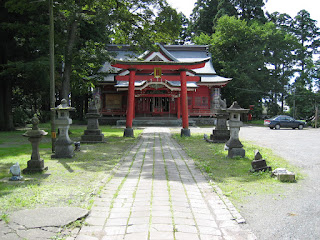The continuing push for elementary English courses is increasing the opportunities to teach in Japan. Many of the new jobs, especially the private placements, are in rural settings (inaka). In this post, we will look at how to get the most out of living in rural Japan.
Welcome to the Inaka
The language barrier will be your biggest problem for the first few months. As your Japanese improves, so will your ability to meet people and make friends. In the beginning, you’re limited to English speakers and people who are patient enough to mime entire sentence with you – you may be surprised at how many of both you’ll be able to find in your town. While you’re learning your survival Japanese, however, there are still some steps you can take to make your life improve immediately.
Get to Know Your Town
Once you’ve settled the practical side of things like finding the post office, it’s time to enjoy some sightseeing. Even the smallest town in Japan has something worth seeing. These can be historical sites, local museums, public parks, temples, shrines, or simply the natural beauty of the countryside. City halls, town halls, public libraries, and community centers often carry tourist-type information pamphlets about your area. These will likely be in Japanese, but you should be able to hunt down someone who is at least willing to draw you a map. You may even find someone who is willing to guide you through the sights once they see you’re interested.
Clubs
Clubs are very important key to Japanese society and are covered in more detail in a different article. Briefly, clubs will help you get to know people in your town, and those people will be able to answer most, if not all, questions you have about your new home. The range of clubs that exist in even a small village is staggering. Taking the above example of sightseeing in your town, many rural communities have walking/hiking clubs that meet regularly for nature walks. You’ll be able to find a club that meets at least one of your interests.
Local Festivals
Most towns in rural Japan have at least a fall festival to celebrate the harvest and a cherry blossom viewing festival, and many towns have several festivals a year. In cities and towns that have been made up of several smaller villages, it is not unusual for each part to keep its local festivals in addition to the amalgamated festivals. The town events calendar is useful for keeping up with this when you learn how to read it, but constantly asking co-workers and friends will help in the meantime. Festivals are a great way to meet your students and their families as well as other people in the community who wouldn’t know you otherwise. You may even find yourself dancing in the parade, dressed in a yukata and a straw hat.
Local Industry
Take every opportunity to learn about the local industry in your town. There is a large amount of specialization in Japanese agriculture and fisheries. Local specialties vary widely with towns specializing in dried squid, sticky rice, spicy miso, black garlic, woven baskets, sheep meat, basically anything you can imagine. Although not many people hope to be placed in a town known for dried squid, actually going out on the midnight ocean and helping pull in the nets while high-powered lights lure the squid to the surface is an experience few people get in Japan. Also, on a practical note, a day spent learning to plant rice or a night spent fishing squid often results in never having to pay for squid or rice during your time in Japan.
Conclusion
Japanese people truly do want to show you the best Japan they can, but they can be shy and, particularly in the case of rural areas, may have a inferiority complex about their town. This is unfortunate as it’s the local events and traditions that make your stay in rural Japan a fascinating and utterly unique experience. By showing an interest in your town, you’ll encourage them to think of you every time there is an event. This will pay dividends in both your relationship with your town and your satisfaction with your life in Japan.




No comments:
Post a Comment